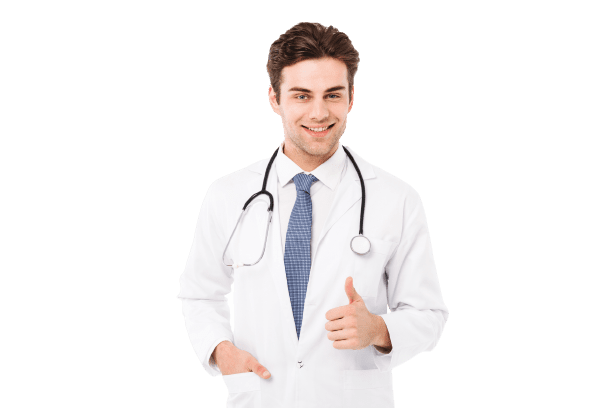CBD Isolates in New York
What Are CBD Isolates?
CBD isolates are a form of cannabidiol (CBD), one of the many cannabinoids found in cannabis and hemp plants. Unlike full-spectrum CBD products, which contain a variety of other cannabinoids and compounds found in the plant, CBD isolates are highly purified and contain only CBD. This means they are free from THC (tetrahydrocannabinol), the psychoactive component of cannabis, as well as other cannabinoids, terpenes, and plant materials. As a result, CBD isolates are a good option for those who want to utilize the potential benefits of CBD without any THC content.
How Are CBD Isolates Regulated in New York?
In New York, the regulation of CBD isolates falls under the broader umbrella of cannabis and hemp product regulations. The state has put in place a detailed regulatory framework for hemp-derived cannabinoids, including CBD. This framework covers the entire supply chain, from processing to retail.
The New York State Department of Health (DOH) has released regulations that include specifics about the inclusion of hemp-derived cannabinoids in food, beverages, and dietary supplements. However, the sale of hemp flower is banned in the state. These regulations also set limits on the amount of cannabinoids per food and beverage product, as well as for dietary supplements. Notably, while finished CBD products must adhere to the federal 0.3% THC limit, intermediary hemp extract can contain up to 3% THC, as long as it is handled by licensed processors.
Moreover, there are licensing and fee requirements for various entities involved in the supply chain. For example, cannabinoid hemp processor applications cost $1,000, and applications for manufacturing (not extracting) cannabinoid hemp cost $500. Additionally, anyone selling cannabinoid hemp must be licensed, with applications costing $300 per location and website address.
Who Can Legally Access CBD Isolates in New York?
In New York, CBD isolates can be legally accessed by individuals following the state’s regulations for hemp-derived products. This means that as long as the products comply with state regulations, including THC content limits and proper licensing, they are accessible to consumers. The products need to be purchased from licensed retailers to ensure compliance with state laws.
What Are the Medical Benefits of CBD Isolates?
CBD isolate, being the purest form of cannabidiol extracted from the cannabis plant, offers a range of potential benefits due to its interaction with the body’s endocannabinoid system. These benefits include relieving discomfort and tension, and supporting various physiological processes. However, it is important to note that CBD isolate does not stimulate the entourage effect, which is a synergistic interaction of various cannabinoids and compounds found in the cannabis plant.
The absence of this effect might limit the full therapeutic potential that could be derived from the plant. Moreover, users of CBD isolate do not benefit from the multitude of other powerful cannabinoids and terpenes that are present in the hemp plant. Despite this, CBD isolate remains a versatile and adaptable option, particularly for those seeking to avoid THC, as it doesn’t show up on drug tests and is devoid of THC’s psychoactive effects.
How Do CBD Isolates Compare to Full-Spectrum Products?
The primary distinction between CBD isolates and full-spectrum CBD products lies in their composition and the resulting effects. CBD isolate is essentially pure CBD, free from other cannabis compounds, including THC. This makes it an ideal choice for those who are sensitive to THC or need to avoid it entirely, such as individuals in federal employment. On the flip side, full-spectrum CBD products contain a wide array of cannabinoids, terpenes, and flavonoids from the hemp plant, including trace amounts of THC (up to 0.3%). This composition allows full-spectrum CBD to leverage the entourage effect, enhancing its therapeutic potential. Users of full-spectrum CBD may experience more noticeable and comprehensive benefits, especially in terms of relaxation, clarity of mind, soothing sensations, and overall well-being.
The choice between CBD isolate and full-spectrum CBD depends on individual needs and preferences. While full-spectrum CBD is generally regarded as more effective in managing conditions like chronic pain and insomnia due to the entourage effect, CBD isolate is a suitable option for those who require a THC-free solution or are sensitive to other cannabinoids. It is also important for users to be aware of the potential buildup of THC in their systems over time with regular use of full-spectrum products, which could lead to unexpected psychoactive effects or positive drug tests.
The decision between the two should be based on an individual’s specific health needs, sensitivity to THC, and desired outcomes. It’s also crucial to ensure that any CBD product, whether isolate or full-spectrum, is sourced from reputable manufacturers that provide third-party lab results to confirm the product’s purity and composition.
Where Can You Find CBD Isolates in New York?
In New York, CBD isolates can be found in various locations, especially with the state’s expanding accessibility to hemp-derived CBD products. CBD isolates and other hemp-derived CBD products are legal and available in New York, with a plethora of shops and dispensaries across the state. You can find these products in major cities like New York City, Brooklyn, Rochester, Buffalo, and other areas.
Notable stores in New York City include MedMen NYC, Etain, and FP Wellness Manhattan. In Brooklyn, you might want to visit Sunnyside Medical Cannabis Dispensary or Columbia Care. For residents in Rochester, the All-Natural CBD Store and Dewey Avenue Smoke Shop are popular choices. In Buffalo, you can explore stores like Vitality CBD and Decades Psychedelic Daze. These shops offer a variety of CBD products, including isolates.
What Should Consumers Look for When Choosing CBD Isolates?
When selecting CBD isolates, consumers should prioritize product quality and safety. Here are some key factors to consider:
Source of Hemp: Opt for CBD products made from US-grown, non-GMO hemp. Hemp absorbs substances from its environment, so it’s important to choose hemp grown in clean, contaminant-free soil.
Extraction Method: Look for products extracted using CO2 methods, which ensure purity and consistent CBD concentrations without harmful solvents.
Full-Spectrum Products: While choosing isolates, consider full-spectrum CBD as well, as it includes a range of beneficial compounds that contribute to the entourage effect.
Third-Party Testing: Choose brands that offer third-party lab testing results to verify the product’s CBD content and check for the presence of any harmful substances.
Avoid Unrealistic Claims: Be wary of any brand that claims CBD is a miracle cure. CBD is a beneficial supplement but is not an overnight cure for ailments.
Legal THC Content: Ensure the CBD product contains 0.3% THC or less to comply with federal regulations.
How Has the Legalization of Medical Marijuana in New York Impacted the Use of CBD Isolates?
The legalization of medical marijuana in New York has had a significant impact on the use of CBD isolates. With the Compassionate Care Act and further expansions, there has been increased accessibility to both marijuana-derived and hemp-derived CBD products for medical purposes.
However, it’s important to note that marijuana-derived CBD oil in New York is allowed only for medical use, and a medical marijuana card is required for its purchase. The legalization and medical program expansion have likely increased awareness and availability of various CBD products, including isolates, as they have become more mainstream in medical and wellness communities. This has potentially led to an increase in the variety and quality of CBD products available to consumers in New York.
Note: This article’s content is provided for educational purposes only. This information is not intended to serve as a substitute for professional legal or medical advice, diagnosis, or treatment. If you have any concerns or queries regarding laws, regulations, or your health, you should always consult a lawyer, physician, or other licensed practitioner.
Connect With MMJ Doctor Now


